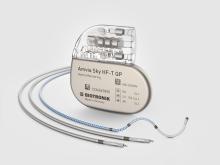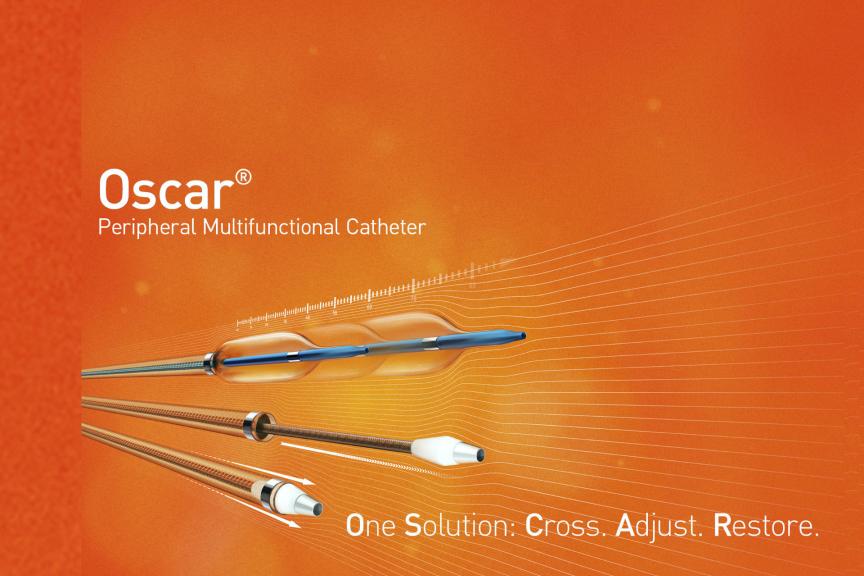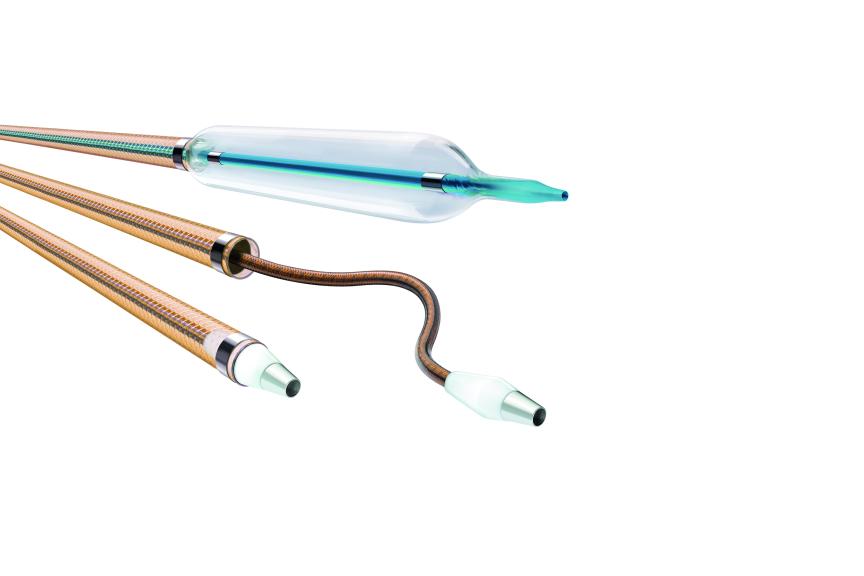BIOTRONIK Enrolls First Patients in BIO-OSCAR FIRST Trial First study to evaluate Oscar Peripheral Multifunctional Catheter’s safety and efficacy in treating complex PAD lesions
BIOTRONIK has enrolled the first patients in its BIO-OSCAR FIRST trial, a study designed to confirm the safety and clinical performance of the Oscar® Peripheral Multifunctional Catheter for dilation of lesions in the femoral, popliteal and infrapopliteal arteries1, including both above-the-knee (ATK) and below-the-knee (BTK) lesions.
The BIO-OSCAR FIRST trial is a prospective, multicenter, single-arm observational study involving 16 European sites within CE-mark accepting territories. Over the next 12 months, the trial aims to enroll 200 subjects - 100 for ATK and 100 for BTK lesions. This study is designed to evaluate Oscar’s performance in a practical clinical setting.
“The Oscar catheter design holds exciting possibilities for Peripheral Artery Disease (PAD) care, particularly in the more challenging cases,” says Dr. Koen Deloose, Head of the Department of Vascular Surgery, AZ Sint Blasius Hospital in Dendermonde, Belgium. “This trial will provide key data on how we can better streamline procedures, assess the algorithm of treatment and reduce the need for re-interventions.”
The first patients were included in the trial today by Dr. Koen Deloose, Head of the Department of Vascular Surgery, AZ Sint Blasius Hospital in Dendermonde, Belgium and by Prof. Dr. Marianne Brodmann, Head of Division of Angiology at the Medical University of Graz, Austria.
The primary endpoint of the study is the Oscar device procedural success rate, which is defined by successful lesion crossing and a residual stenosis of ≤30%, without significant Oscar-related procedural complications such as distal embolization, vessel rupture, perforation, or acute occlusion.
“With the BIO-OSCAR FIRST study, we’re looking to validate Oscar’s potential to simplify complex interventions while confirming safety and efficacy,” says Stuart Perks, Vice President at BIOTRONIK Vascular Intervention. “Many physicians have reported excellent procedural outcomes with Oscar. Our focus now is to generate the hard clinical evidence to support clinician’s decision-making and the care they deliver to their patients.”
The Oscar device is an all-in-one solution (One Solution: Cross. Adjust. Restore) indicated for femoral, popliteal and infrainguinal lesions. The Oscar support catheter and dilator are used in tandem to enable lesion access and crossing with a compatible guidewire, offering a range of support strength dependent on the extension of the dilator. At its strongest support level, the combination provides 55% more pushability than the leading 0.035” support catheter.2 The PTA balloon’s length is adjustable from 20 to 180 mm, allowing users to customize angioplasty by matching the balloon exactly to the lesion length.3
-END-
References:
1 See Instruction for Use
2 BIOTRONIK data on file. Testing performed with Oscar 0.018/6F support catheter and dilator combination.
3 7 mm PTA balloon length range is 20 to 100 mm.
Disclaimer: Oscar is a trademark or registered trademark of the BIOTRONIK Group of Companies.
For more information, please visit: Oscar
Oscar® Multifunctional Catheter is indicated for percutaneous transluminal interventions in the peripheral vasculature to provide support during access into and to dilate stenoses in femoral, popliteal and infrapopliteal arteries. The product is also intended for injection of radiopaque contrast media for the purpose of angiography.
About BIOTRONIK:
At BIOTRONIK, patient well-being is our top priority and has been for over 60 years. BIOTRONIK is a leading global medical technology company with products and offerings that save and improve the lives of millions suffering from heart and blood vessel diseases as well as chronic pain. Driven by a purpose to perfectly match technology with the human body, we are dedicated innovators who develop trusted cardiovascular, endovascular and neuromodulation therapies. BIOTRONIK is headquartered in Berlin, Germany, and is represented in over 100 countries across the Americas, EMEA (Europe, the Middle East, and Africa), and Asia-Pacific.






